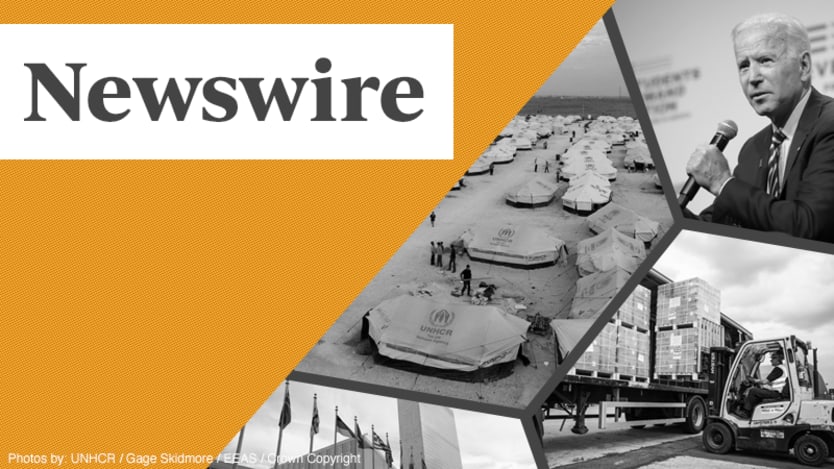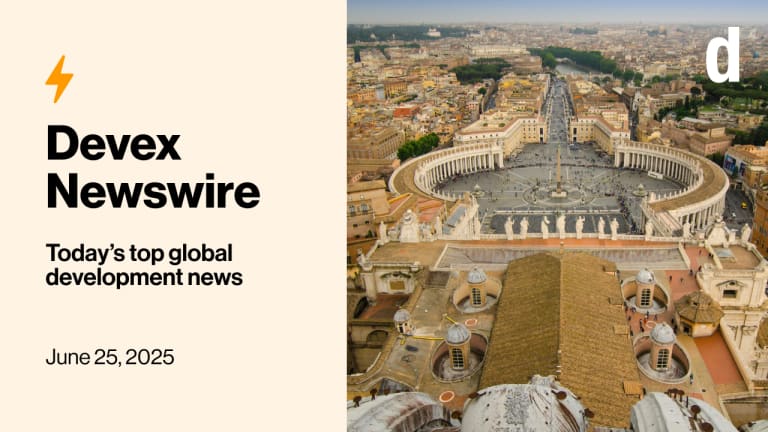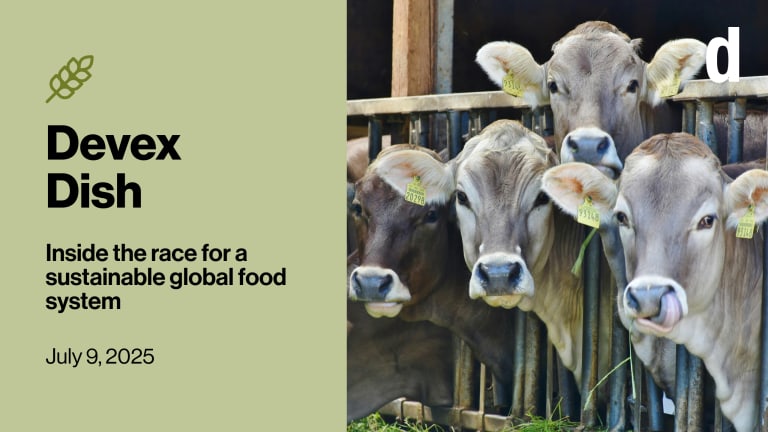
In Haiti, where 60% of the population relies on agriculture to make a living, farmers struggle to access high-quality seeds. The country lacks a coordinated seed distribution system, and years of international assistance have had little success in building one.
Zanmi Agrikol — the agricultural arm of Zanmi Lasante, a “sister organization” of Boston-based nonprofit Partners in Health — works with smallholder farmers in Haiti’s Central Plateau region and with families to prevent malnutrition. But even this organization struggles to access quality seeds, particularly for vegetables, says executive director Reginald Cean.
Teresa Welsh reports from Corporant on the challenge of boosting agricultural productivity in a country without a functioning seed market.
This is a preview of Newswire
Sign up to this newsletter for an inside look at the biggest stories in global development, in your inbox daily.
“It’s a systematic, deep-rooted, decades-long problem that is not getting better, and that’s what’s so scary,” says Louise Sperling, research director at SeedSystem.
In the wake of the 2010 earthquake that struck near Port-au-Prince, Sperling and others conducted a seed security assessment to determine how much damage had been done to the country’s agricultural system. They found that 98% of the seeds used by farmers came from informal systems, such as gifting, bartering, or replanting grains after harvest.
There has been little success since then in establishing a more coordinated national system, and few expect the government to take that project on.
“It’s just a cycle going nowhere,” Sperling says.
Devex Pro: Seed access woes prevent growth of Haitian agriculture
+ For the inside track on how agriculture, nutrition, sustainability, and more intersect to remake the global food system, sign up for Devex Dish, our latest newsletter.
Truth to power
“Grassroots organizations are repeatedly thanked for ‘grounding’ policy discussions in the realities that communities face. And then everyone marches onward, promoting their top-down approaches.”
— Betsy McCallon, former CEO, White Ribbon AllianceGlobal health architecture needs a major shakeup, McCallon writes in this op-ed. For starters, money spent on “performative global events” should be invested in “meaningful dialogues” that give voice to what people actually want.
Opinion: Lessons from 17 years of trying to change the system
Global Britain
The United Kingdom’s Foreign Secretary Liz Truss is trying to establish working groups with Saudi Arabia and Qatar for infrastructure and financing projects in African and Asian countries, Will Worley reports. The potential collaboration with “like-minded partners” aims to support the G-7’s Build Back Better World Initiative — intended as the West’s response to China’s Belt and Road Initiative.
Read: UK seeks development partnerships with Gulf states
Devex Pro: What the G-7's global infrastructure plan means for development agencies
America first, second, and third
On Wednesday, the United States Food and Drug Administration authorized an expansion of COVID-19 booster shots.
“The reality is, the more wealthy countries use booster shots, the further we will be from ending the pandemic,” said Tom Hart, acting CEO at ONE, in a statement.
Only 2.8% of people in low-income countries have received at least one dose of a COVID-19 vaccine.
+ For more content like this, sign up for Devex CheckUp, the must-read weekly newsletter for exclusive global health news and insider insights.
Bank to basics
The World Bank’s data integrity is in question after the Doing Business scandal. Its ability to deliver global public goods has been tested by the COVID-19 pandemic. Would the institution provide more value if its sprawling bureaucracy was replaced by an algorithm that delivered cash to low-income countries based on need? Arvind Subramanian and Justin Sandefur of the Center for Global Development offer a provocative proposal.
ICYMI: The real problem in the World Bank’s Doing Business indicator
+ Pro subscribers can read up on the future of Doing Business.
Common ground
The Finance in Common summit of public development banks was light on top-line deliverables. Participants are likely keeping their powder dry ahead of COP 26. Here are a few of the outcomes, courtesy of my colleague Vince Chadwick:
• A letter of intent between the FAO and Italy’s Cassa Depositi e Prestiti to collaborate more.
• A declaration on a co-financing platform from Italy, France, Spain, and Germany’s bilateral financial institutions, which was first flagged in May.
• A platform for green and inclusive food systems.
ICYMI: Can public development banks muster a ‘movement’?
In other news
The Bill & Melinda Gates Foundation announced yesterday that it will inject $120 million into ensuring a generic version of molnupiravir, Merck's antiviral COVID-19 pill, will be available to low-income countries. [AP]
Leaked documents revealed some high-income countries have asked the Intergovernmental Panel on Climate Change to water down its report suggesting the urgent need to drop the use of fossil fuels. [BBC]
The U.K.'s early response to the pandemic started strong, but was undercut by its decision to cut aid spending, hampering the COVID-19 response in low-income countries, according to an aid watchdog report. [The Telegraph]
Sign up to Newswire for an inside look at the biggest stories in global development.








